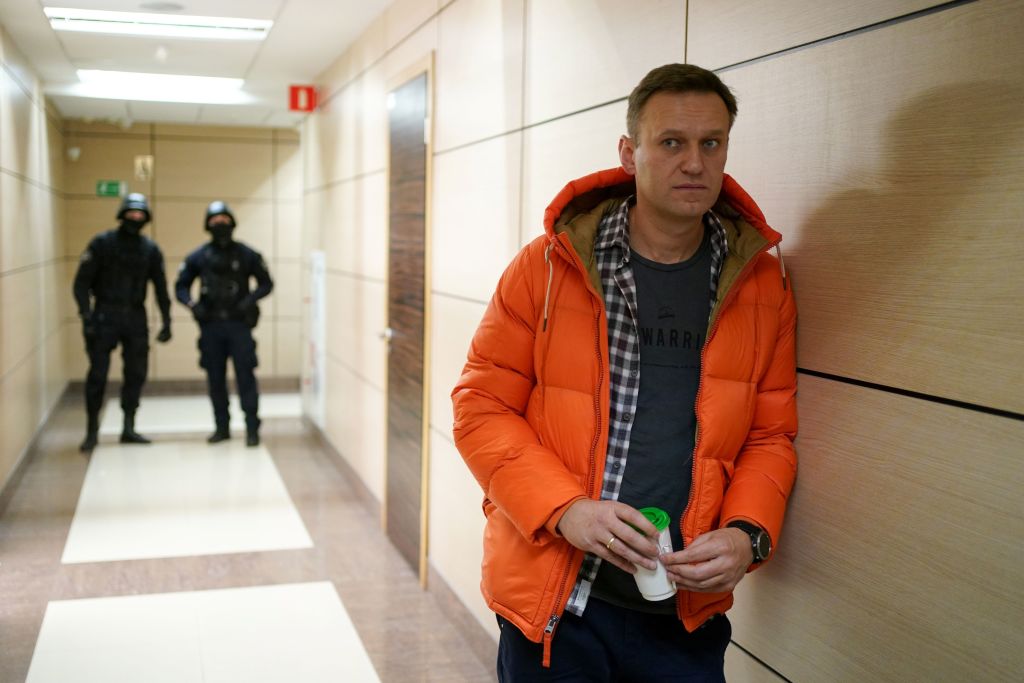
A Russian court on Tuesday convicted jailed opposition leader Alexey Navalny on new fraud charges, according to his allies, in a ruling that may keep President Vladimir Putin’s top critic in a maximum security prison for 13 years.
Navalny, who is currently serving a two-and-a-half year sentence that the European Court of Human Rights called politically motivated, has used his appearances during the trial to denounce Putin’s invasion of Ukraine, which has plunged Russia into economic crisis and international isolation.
The conviction comes amid a harsh crackdown on dissent since the start of the war a month ago, with Putin labeling those opposed to the invasion as “traitors.” This week Russia banned Facebook and Instagram as “extremist” and the authorities have blocked or shut down independent media in order to control access to information.
READ MORE: The Man Putin Fears
“It’s the duty of every person now to oppose this war,” Navalny told the court in his final statement. The invasion of Ukraine will result in “our country’s collapse and disintegration,” he said.
Navalny, who was set to be released next year, could now be transfered to a more remote penal colony that will make it harder for him to maintain contact with supporters, his spokeswoman Kira Yarmysh said on Twitter Monday.
The judge found Navalny guilty of fraud, and he also faces charges of contempt of court, his aide Ivan Zhdanov said. His sentence will be announced after the judge Margarita Kotova of Moscow’s Lefortovo court finishes reading her ruling.
He stood trial remotely from his prison about 100 kilometers (60 miles) from Moscow due to what the authorities said were Covid-19 restrictions, but has until now been able to post on social media via his lawyers.
Navalny, 45, has been in detention since January 2021, when he returned to Russia after recovering abroad from a near-fatal attack involving a nerve-agent that he and Western governments blamed on Putin’s secret services. The Kremlin denies any involvement in the assassination attempt in Siberia.
Putin has been in power since 2000, the longest rule since Soviet dictator Josef Stalin, and has become increasingly intolerant of dissent. Russian authorities have accused Navalny of acting as a Western agent and banned his organizations as extremist after his detention, prompting most of his key aides to flee the country to avoid arrest.
Navalny’s supporters and human rights defenders have accused Putin of doing everything to keep him silent. Amnesty International denounced the case as a “sham trial.”
More Must-Reads from TIME
- Cybersecurity Experts Are Sounding the Alarm on DOGE
- Meet the 2025 Women of the Year
- The Harsh Truth About Disability Inclusion
- Why Do More Young Adults Have Cancer?
- Colman Domingo Leads With Radical Love
- How to Get Better at Doing Things Alone
- Michelle Zauner Stares Down the Darkness
Contact us at letters@time.com